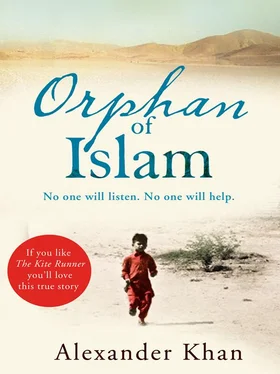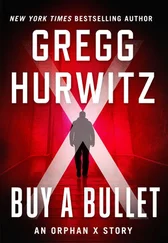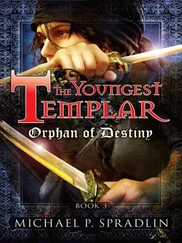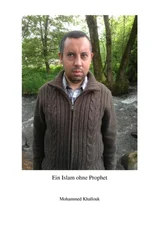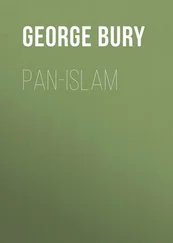It goes without saying there was no anaesthetic. Dad would’ve rounded up the village imam, who also served as the village doctor, and a few of the elders, to oversee proceedings. I don’t recall their solemn bearded faces leaning over me as I lay on a scruffy bit of carpet in the village mosque, but I do remember the searing pain as the razor-sharp butcher’s knife cut through my little foreskin and my blood staining the carpet a deep red. Iodine must’ve been applied very quickly, as I remember looking down and seeing my genitals covered all over with a substance the colour of saffron. For days afterwards I suffered burning agony when I tried to pee. If I called out for my mummy at any time during those hazy, fractured few years, it would have been then.
My only other memory from this period is when I tried to shoot the moon. I’d found an old pellet gun in the house where we were staying and had been encouraged to take it outside and learn to use it. Having a gun in Pakistan is no big deal and boys handle weapons from an early age. Seeing an old shotgun propped against the interior wall of a house or an AK47 left in the corner of a mosque while its owner says his prayers isn’t uncommon. So the uncles of the family must’ve been delighted when I picked up the gun and lugged it outside. The moon was an obvious target. I’d never seen such clear skies in my short life; the sheer number and brilliance of the stars in the night sky was mesmerizing, and the moon hung in between them like a gigantic waxy-yellow fruit. I heaved the rifle to my shoulder, assisted by Jasmine, and took careless aim at the sky. No one had told me about recoil, so when I dropped it immediately after it went it off, the butt landed right on Jasmine’s foot, leaving her with a deep cut and a permanent scar.
We didn’t go to school during our time in Pakistan. Our family in England spoke Pashto among themselves, so it’s not as if we knew nothing of the language and couldn’t have managed to some extent in school. But I imagine the Pakistani relatives thought there was little point in sending us; we probably seemed happy enough, playing in the dust beneath the brick and mud walls of the houses or watching the farmers slowly gather in their crops under the vast and cloudless sky. The days were endless and dangers were few. My Pashto was certainly getting better, and after a year or so I could communicate with my cousins. If Dad hadn’t needed to earn money in England, maybe this is where my story would’ve ended. I’d have remained in Pakistan all my life, tending the fields or driving trucks or fixing cars or keeping a shop. In time the memories of Mum would’ve faded, and although I might never have fitted in – the gossip about the boy with the kuffar for a mother was unlikely to disappear – I’d have probably had an arranged marriage with a cousin and spawned a few kids. The opportunities to do anything other than conform would’ve been extremely limited. However, it might have been a much happier existence than the one that was waiting for me.
After spending three years in Pakistan, not knowing who we were or if we really belonged to anyone, we were taken back to England. That’s when my troubles really began.
We were met at Heathrow by a gaggle of relatives who’d obviously relished the chance of getting out of Hawesmill for the day, even if it was just a boring trip down the M6 to London. What little baggage we had was crammed into the back of an ancient Ford Transit minibus and we were squashed in against our cousins. They sniggered and winked at one another whenever we spoke in fluent accentless Pashto.
I was jammed up against the window. It was December 1981. The minibus’s windscreen wipers waved monotonously the whole journey. It was only late afternoon, but already every headlight was on. England seemed cold, grey and dark. I shivered in my thin salwar kameez, wishing I had a nice parka with fur round the hood, just like my cousins had. The endless sun and long, lazy days seemed far away. The further north we travelled, the darker it got. It was like entering the mouth of a tunnel with no end in sight.
‘Where’s our house?’ I asked Dad. ‘Where are we going to live? Will Mum be there?’
Dad, sitting in the front passenger seat, turned round and exchanged a glance with Fatima, who was in the aisle seat opposite mine, her two youngest children curled up on her lap. She nodded, then stared at me wordlessly.
‘You’re going to live with Aunty Fatima for a while,’ Dad said. ‘Just while I get sorted out. It won’t be long before we have our own house. Aunty will look after you until then.’
‘But where will you be?’
‘I’m busy, Mohammed,’ Dad said. ‘You’ll both have to be patient. I’ll be around, off and on. You’ll be fine.’
‘So when will we see Mum?’
‘That’s enough questions!’ shouted Fatima, sitting upright and glaring at me. ‘We don’t know where she’s gone. So stop asking. You’ll be fine with us. Now go to sleep.’
Fatima turned away and pulled her two children closer to her. I traced my finger over the steamed-up window and made a small square that I could see out of. I felt very uncomfortable. Fatima had snapped at me just because I’d asked about Mum. It seemed clear that she wasn’t to be mentioned in her presence. But why? Adults were stupid, always telling you not to say this, not to do that. I drew a circle on the window and put in two dots for eyes and a straight line for a nose. I sneaked a look at Fatima, then drew a sad mouth. Already I hated her.
The Transit began a slow crawl from the town centre up to Hawesmill. My memories of this place were few; compared to the spacious compounds in Tajak and the vast fertile plains of the Indus Valley, Hawesmill looked small, cold and mean. Every house was the same. One street was no different from the next. The van bumped and slid over greasy cobbles before stopping outside a house three-quarters of the way up a long terrace row.
‘Here we are, kids,’ said Dad, smiling. ‘97 Nile Street. Welcome home. Come on, let’s get your stuff in.’
Dad grabbed our bags and gave a few notes to the driver. We stood shivering on the pavement. Snow was falling. I’d never seen white stuff dropping from the sky before and I was rooted to the spot with amazement.
Fatima was busy with her girls, Majeeda, who was 12, and Maisa, aged seven. Her nine-year-old boy, Tamam, banged on the door and shouted through the letterbox. Fatima pulled him away sharply, clipping him on his ear before rummaging in her bag for a key. Tamam winced and stared up at her like a beaten dog. Then he caught me looking at him and pulled his face into a snarl.
Fatima opened the door and pushed us all inside. We crowded into a narrow lobby, tripping over coats, bags and shoes. Tamam and Maisa bustled past Jasmine and me. Tamam gave me an extra shove as he passed.
‘Ayesha! Ayesha!’ Fatima yelled up the stairs. ‘Ayesha, come down now! Have you made the dinner? I can’t smell anything. Get down these stairs now!’
A teenage girl stuck her head round the top of the bannister rail and caught my eye. She winked and smiled. She plodded slowly downstairs, even as her mother screeched at her.
‘Hurry up, girl,’ Fatima said, ‘we’re all starving. I hope you’ve made something. Where’s your father?’
‘At the shop,’ she replied. ‘Where else? So … these are the little village kids. Haven’t they grown up? They’re really brown, too. You’d never think their mum was …’
‘Shut up!’ said Fatima fiercely. ‘Where’s the dinner?’
‘Made ages ago,’ came the surly reply. ‘It’s gone cold.’
‘Put the stove on then,’ Fatima said. ‘And leave a plate aside for your father. He’ll want something when he comes in.’
Читать дальше
